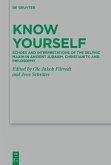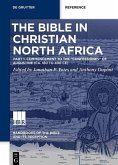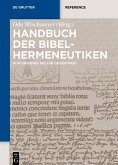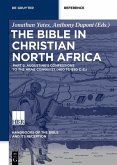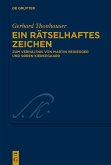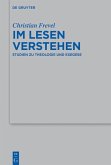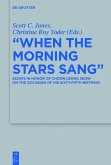The book explores ancient interpretations and usages of the famous Delphic maxim "know yourself". The primary emphasis is on Jewish, Christian and Greco-Roman sources from the first four centuries CE. The individual contributions examine both direct quotations of the maxim as well as more distant echoes. Most of the sources included in the book have never previously been studied in any detail with a view to their use and interpretation of the Delphic maxim. Thus, the book contributes significantly to the origin and different interpretations of the maxim in antiquity as well as to its reception history in ancient philosophical and theological discourses. The chapters of the book are linked to each other by numerous cross-references which makes it possible to compare the different views of the maxim with each other. It also helps readers to notice relationships and trajectories within the material. The explorations of the relevant sources are also set in the context of ongoing debates about the shape and nature of ancient conceptions of self and self-knowledge. The book thus demonstrates the wide variety of philosophical and theological approaches in that the injunction to know oneself could be viewed and how these interpretations provide windows into ancient discourses about self and self-knowledge.
Dieser Download kann aus rechtlichen Gründen nur mit Rechnungsadresse in A, B, BG, CY, CZ, D, DK, EW, E, FIN, F, GR, HR, H, IRL, I, LT, L, LR, M, NL, PL, P, R, S, SLO, SK ausgeliefert werden.



